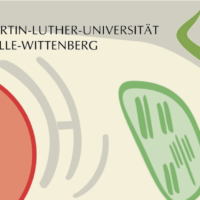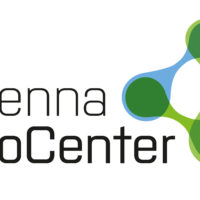Học Bổng Bốn Phương
Hai suất học bổng PhD ngành Biochemistry-Structural Biology và Bioinformatics tại Poland 2019
- Chi tiết bài viết
- Bài viết liên quan
Nhóm nghiên cứu của GS Janusz M. Bujnicki, International Institute of Molecular and Cell Biology (IIMCB), Poland, đang tìm kiếm 2 sinh viên PhD để làm về các dự án liên quan đến RNA.
PhD ngành Biochemistry/Structural Biology:
Ribonucleic acid (RNA) molecules play pivotal roles in living organisms. Their functions are often modulated by interactions with other molecules. Examples of RNA molecules regulated by small chemical molecules include riboswitches in bacteria and regulatory elements in viruses. The goal of this project is to study the mechanism of action of shape-shifting RNAs, solve their 3D structures, and understand how the interactions with small molecule ligands influence their function. Ultimately, we will identify small chemical molecules that can block the function of regulatory RNAs and can serve as a starting point for the development of antibacterial and antiviral drugs. As a Ph.D. student, you will be involved in RNA expression and purification, structural analyses (including biochemical probing, X-ray crystallography and structure analyses in solution), and analyzing RNA-ligand interactions with various biochemical and biophysical techniques.
Điều kiện:
- Có bằng thạc sỹ các ngành molecular biology, biochemistry, hay biophysics.
- Có kinh nghiệm liên quan đến biochemistry/biophysics of nucleic acids and/or proteins.
Các nộp đơn:
Ứng viên gởi hồ sơ về địa chỉ [email protected] với email tiêu đề là “PhDstudent_RNAbiochemistry” kèm theo họ tên của ứng viên.
- CV
- Cover letter: trả lời các câu hỏi What are your scientific interests and how do they relate to requirements of the position offered? What are your key strengths? What do you know about our laboratory and why do you want to work with us?
- Thông tin 2 người referee
- Ghi kèm theo câu sau đây: “I hereby agree to the processing of my personal data, included in the application documents by the International Institute of Molecular and Cell Biology in Warsaw, 4 Księcia Trojdena Street, 02-109 Warsaw, for the purpose of carrying out the current recruitment process.”
PhD ngành Bioinformatics:
One of the fundamental challenges of biology is to design RNA molecules that form desired structures and carry out desired functions. Designing RNA sequences with specific folding properties has already proven useful in a number of applications in biotechnology, molecular medicine, and material science. We have already developed new methods for the computational design of RNA sequences and structures. We are currently improving the software and testing our methods in practice, including synthesis and structure determination of the designed molecules. The current goal is to improve the design of RNA molecules that can switch between several defined structures, depending on the conditions. As a Ph.D. student, you will be involved in the development and testing of a computational method for designing RNA molecules that are capable of switching between desired alternative 3D structures. Your work will be focused on programming and computational analyses. Students interested in interdisciplinary research may optionally learn how theoretical predictions are tested experimentally.
Điều kiện:
- Có bằng thạc sỹ ngành computer science, physics, molecular biology, hoặc chemistry.
- Documented experience in programming (preferably Python and/or C/C++). Knowledge of Python or C/C++ is not mandatory, and experience with other programming languages will also be considered, but the candidate must be willing to learn Python and C/C++ very quickly, as most of our programs are written in these languages
Cách nộp đơn:
Tương tự như trên nhưng tiêu đề email sẽ là “PhDstudent_modeling_software” kèm theo họ tên của ứng viên.
Hạn chốt: ngày 15 tháng Ba 2019.
Bắt đầu nhập học: ngày 15 tháng Tư 2019.
Để biết thêm chi tiết về các học bổng và về Lab, độc giả xem tại đây.
Nguồn hình: Warsaw







